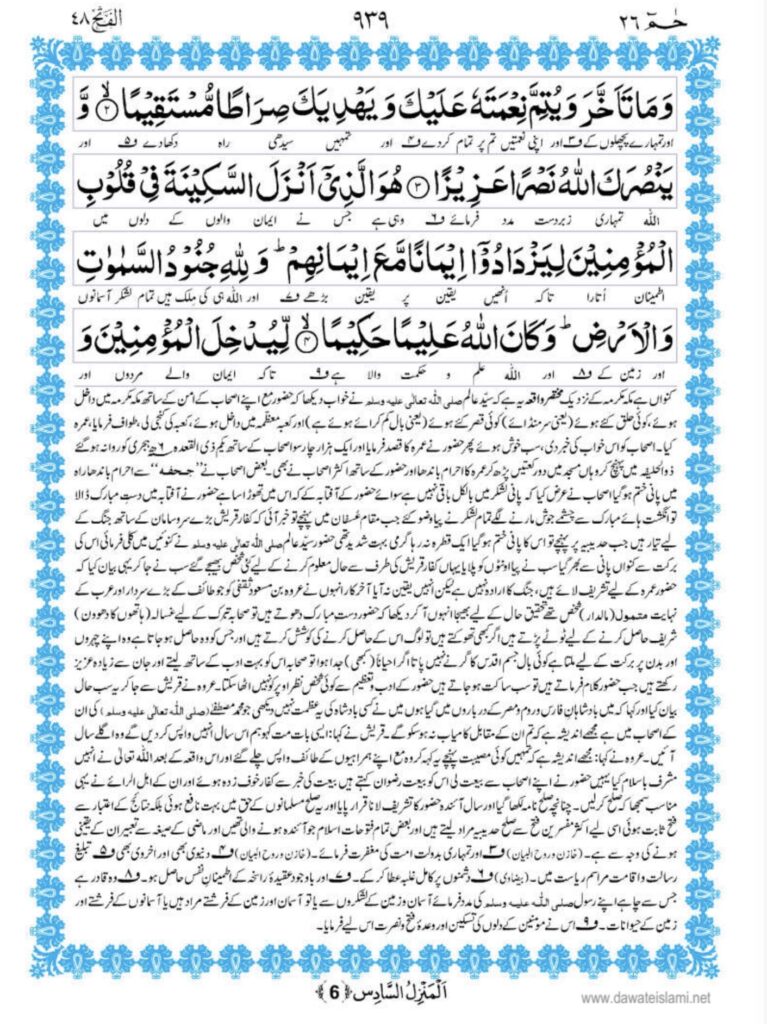This week we will have a closer look at another influential Urdu Qurʾan translation, this time Ahmad Riza Khan’s (1856–1921) Kanzul Iman.
Ahmad Riza Khan hailed from Bareilly in India, where he lived for his entire life. His ancestry can be traced back to the Pathans, specifically, it seems likely, to a tribe that migrated from Qandahar, serving under Mughal rule as both soldiers and administrators. The family’s transition from a military background to one with a focus on religious studies occurred under the guidance of Ahmad Riza’s grandfather, Ali Riza, who settled in Bareilly and gained recognition as a scholar. His legacy of religious scholarship was continued by Naqi Ali Khan (1831–1880), Ahmad Riza’s father, who diligently carried forward the intellectual tradition initiated by Ali Riza.

Ahmad Riza Khan’s most influential teacher was his father, under whose tutelage he studied the Dars-i Nizami, the prevalent madrasa syllabus at that time. His biographers portray him as a talented young man who memorized the Qurʾan at an early age, and he is said to have completed the Dars-i Nizami at the age of fourteen, after which he was allowed to issue fatwas on religious issues. In addition to the formative impact of his father, the teachings of Shah Al-i Rasul, a Sufi from the Qādirī order, left an indelible mark on Ahmad Riza, who joined the Qādiriyya by pledging alliance on Shah Al-i Rasul’s hand. Shortly after joining the Qādiriyya. Ahmad Riza underook a pilgrimage to the Hijaz, where he also obtained certificates (sanad) in various field of knowledge, such as ḥadīth, exegesis (tafsīr) and the principles of fiqh (uṣūl-i fiqh).
Ahmad Riza Khan played a central role in the formation of the Ahl-e Sunnat wa Jamaat. Outside the movement his followers are commonly known as Barelwis, a term which is rejected by the Ahl-e Sunnat itself. Riza’s movement stands out from other nineteenth-century movements due to its distinctive emphasis on ritual practices. These encompass the commemoration of death anniversaries and organization of ceremonies in honor of the Prophet Muhammad’s birth anniversary. Moreover, the movement is characterized by a rigid hierarchical structure that reveres the Prophet, saints and scholars, considering them patrons and intercessors. This means that members of the movement are closely connected to specific shrines, which they visit for ritual worship. The Prophet is accorded an exceptional role, with Ahmad Riza Khan and his followers believing in his ability to intercede on the Day of Judgment. In fact, Muhammad is held in such high esteem by the Ahl-e Sunnat that it is believed he possesses knowledge of the unseen (al-ghayb), a belief that has sparked heated debates with the Deobandis. Within his own movement, Ahmad Riza Khan is revered as the mujaddid of the fourteenth century, the embodiment of both religious and mystical knowledge.
Apart from the huge amount of fatwas which Ahmad Riza Khan issued throughout his life, he also composed an Urdu translation of the Qurʾan entitled Kanz al-īman fī tarjamat al-Qurʾān (published in English translation as The Treasure of Faith). According to sources within the Ahl-e Sunnat movement, Ahmad Riza Khan was approached by Amjad Ali, a trusted follower, to compose an Urdu translation. Juggling his commitments, Riza requested that Amjad Ali join him at night to work on the translation. During these nocturnal sessions, Riza Khan conveyed his translation verbally, and the two would consistently convene either at night, or in the afternoon, until the translation was finalized.

Ahmad Khan’s Urdu rendition of the Qur’an exhibits some of the movement’s distinctive characteristics and its veneration for the Prophet Muhammad. For instance, it is noticeable that Ahmad Khan added the phrase ‘O beloved one’ wherever the Prophet Muhammad is addressed in the Qurʾan. For instance, Q 2:4 is translated as follows: ‘And those who believe in that which has been revealed to you, O beloved one, and that which was revealed before you.’ The original Arabic does not contain the words ‘O beloved one,’ rather, this is a phrase inserted by Ahmad Riza Khan and used to express his perception of the link between God and Muhammad, as well as the fact that the nature of their conversation that was based on love. It is also worth noting that Ahmad Riza did not use brackets to indicate this additional wording, in any instance in which it was employed. The enhanced status he ascribed to the Prophet can also be observed in some other specific translation choices that have the effect of highlighting the idea of Prophetic infallibility. An example can be found in Q 48:2, li-yaghfira laka llāhu mā taqaddama min dhanbika wa-mā taʾakhkhara, which is translated by Abdel Haleem as ‘So that God may forgive your past and future sins …’. Ahmad Riza Khan provides the following, quite different translation: ‘So that Allah may forgive through you the sins of your predecessors and successors.’ This translation choice underscores the Barelwi inclination towards veneration of the Prophet. According to their perspective, it is inconceivable that the Prophet could have sinned or made a mistake, and thus the passage has been articulated in a manner that aligns with the Ahl-e Sunnat wa Jamaat views of Prophetic infallibility.


Adding footnotes to the translation, Naʿīm al-Dīn Murādābādī (d. 1948), a learned scholar and close follower of Riza Khan, wrote an exegesis which is known as Khazāʾin al-ʿIrfān. In most of the Urdu editions I have consulted, Ali Riza’s translation is accompanied by this commentary. At the current time, Riza Khan’s work still serves as a source of inspiration for millions of his followers and has been translated into several languages, including English, Hindi and Sindhi.
Kamran Khan
